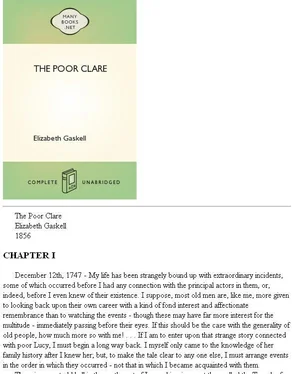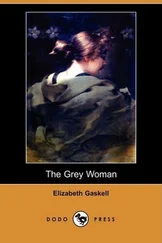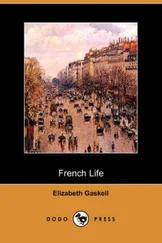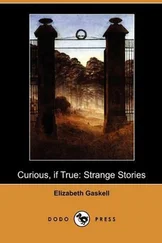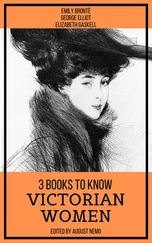Elizabeth Gaskell - The Poor Clare
Здесь есть возможность читать онлайн «Elizabeth Gaskell - The Poor Clare» весь текст электронной книги совершенно бесплатно (целиком полную версию без сокращений). В некоторых случаях можно слушать аудио, скачать через торрент в формате fb2 и присутствует краткое содержание. Год выпуска: 2009, Издательство: Book Jungle, Жанр: Старинная литература, на английском языке. Описание произведения, (предисловие) а так же отзывы посетителей доступны на портале библиотеки ЛибКат.
- Название:The Poor Clare
- Автор:
- Издательство:Book Jungle
- Жанр:
- Год:2009
- ISBN:нет данных
- Рейтинг книги:4 / 5. Голосов: 1
-
Избранное:Добавить в избранное
- Отзывы:
-
Ваша оценка:
- 80
- 1
- 2
- 3
- 4
- 5
The Poor Clare: краткое содержание, описание и аннотация
Предлагаем к чтению аннотацию, описание, краткое содержание или предисловие (зависит от того, что написал сам автор книги «The Poor Clare»). Если вы не нашли необходимую информацию о книге — напишите в комментариях, мы постараемся отыскать её.
The Poor Clare — читать онлайн бесплатно полную книгу (весь текст) целиком
Ниже представлен текст книги, разбитый по страницам. Система сохранения места последней прочитанной страницы, позволяет с удобством читать онлайн бесплатно книгу «The Poor Clare», без необходимости каждый раз заново искать на чём Вы остановились. Поставьте закладку, и сможете в любой момент перейти на страницу, на которой закончили чтение.
Интервал:
Закладка:
'Don't you? said she, coming a step closer, and changing her imprecatory cry for a whisper which made the gamekeeper's lad, following Mr. Gisborne, creep all over. 'You shall live to see the creature you love best, and who alone loves you — ay, a human creature, but as innocent and fond as my poor, dead darling — you shall see this creature, for whom death would be too happy, become a terror and a loathing to all, for this blood's sake, Hear me, O holy saints, who never fail them that have no other help!
She threw up her right hand, filled with poor Mignon's life-drops; they spirted, one or two of them, on his shooting dress — an ominous sight to the follower. But the master only laughed a little, forced, scornful laugh, and went on to the Hall. Before he got there, however, he took out a gold piece, and bade the boy carry it to the old woman on his return to the village. The lad was 'afeared', as he told me in after years; he came to the cottage, and hovered about, not daring to enter. He peeped through the window at last; and by the flickering wood-flame, he saw Bridget kneeling before the picture of Our Lady of the Holy Heart, with dead Mignon lying between her and the Madonna. She was praying wildly, as her outstretched arms betokened. The lad shrank away in redoubled terror; and contented himself with slipping the gold-piece under the ill-fitting door. The next day it was thrown out upon the midden; and there it lay, no one daring to touch it.
Meanwhile Mr. Gisborne, half curious, half uneasy, thought to lessen his uncomfortable feelings by asking Sir Philip who Bridget was? He could only describe her — he did not know her name. Sir Philip was equally at a loss. But an old servant of the Starkeys, who had resumed his livery at the Hall on this occasion — a scoundrel whom Bridget had saved from dismissal more than once during her palmy days — said:
'It will be the old witch, that his worship means. She needs a ducking, if ever a woman did, does that Bridget Fitzgerald.
'Fitzgerald! said both the gentlemen at once. But Sir Philip was the first to continue:
'I must have no talk of ducking her, Dickon. Why, she must be the very woman poor Starkey bade me have a care of; but when I came here last she was gone, no one knew where. I'll go and see her tomorrow. But mind you, sirrah, if any harm comes to her, or any more talk of her being a witch — I've a pack of hounds at home, who can follow the scent of a lying knave as well as ever they followed a dog-fox; so take care how you talk about ducking a faithful old servant of your dead master's.
'Had she ever a daughter? asked Mr. Gisborne, after a while.
'I don't know — yes! I've a notion she had: a kind of waiting-woman to Madame Starkey.
'Please your worship, said humbled Dickon. 'Mistress Bridget had a daughter — one Mistress Mary — who went abroad, and has never been heard of since; and folks do say that has crazed her mother.
Mr. Gisborne shaded his eyes with his hand.
'I could wish she had not cursed me, he muttered. 'She may have power — no one else could. After a while, he said aloud, no one understanding rightly what he meant; 'Tush! it is impossible! — and called for claret; and he and the other gentlemen set-to to a drinking bout.
CHAPTER II
I now come to the time in which I myself was mixed up with the people that I have been writing about. And to make you understand how I became connected with them, I must give you some little account of myself. My father was the younger son of a Devonshire gentleman of moderate property; my eldest uncle succeeded to the estate of his forefathers, my second became an eminent attorney in London, and my father took orders. Like most poor clergymen, he had a large family; and I have no doubt was glad enough when my London uncle, who was a bachelor, offered to take charge of me, and bring me up to be his successor in business.
In this way I came to live in London, in my uncle's house, not far from Gray's Inn, and to be treated and esteemed as his son, and to labour with him in his office. I was very fond of the old gentleman. He was the confidential agent of many country squires, and had attained to his present position, as much by knowledge of human nature as by knowledge of law; though he was learned enough in the latter. He used to say his business was law, his pleasure heraldry. From his intimate acquaintance with family history, and all the tragic courses of life therein involved, to hear him talk, at leisure times, about any coat of arms that came across his path was as good as a play or a romance. Many cases of disputed property, dependent on a love of genealogy, were brought to him, as to a great authority on such points. If the lawyer who came to consult him was young, he would take no fee, only give him a long lecture on the importance of attending to heraldry; if the lawyer was of mature age and good standing, he would mulct him pretty well, and abuse him to me afterwards as negligent of one great branch of the profession. His house was in a stately new street called Ormond Street, and in it he had a handsome library; but all the books treated of things that were past; none of them planned or looked forward into the future. I worked away — partly for the sake of my family at home, partly because my uncle had really taught me to enjoy the kind of practice in which he himself took such delight. I suspect I worked too hard; at any rate, in seventeen hundred and eighteen I was far from well, and my good uncle was disturbed by my ill looks.
One day, he rang the bell twice into the clerk's room at the dingy office in Gray's Inn Lane. It was the summons for me, and I went into his private room just as a gentleman — whom I knew well enough by sight as an Irish lawyer of more reputation than he deserved — was leaving.
My uncle was slowly rubbing his hands together and considering, I was there two or three minutes before he spoke. Then he told me that I must pack up my portmanteau that very afternoon, and start that night by post-horse for West Chester. I should get there, if all went well, at the end of five days' time, and must then wait for a packet to cross over to Dublin; from thence I must proceed to a certain town named Kildoon; and in that neighbourhood I was to remain, making certain inquiries as to the existence of any descendants of the younger branch of a family to whom some valuable estates had descended in the female line. The Irish lawyer whom I had seen was weary of the case, and would willingly have given up the property, without further ado, to a man who appeared to claim them; but on laying his tables and trees before my uncle, the latter had foreseen so many possible prior claimants, that the lawyer had begged him to undertake the management of the whole business. In his youth, my uncle would have liked nothing better than going over to Ireland himself, and ferreting out every scrap of paper or parchment, and every word of tradition respecting the family. As it was, old and gouty, he deputed me.
Accordingly, I went to Kildoon. I suspect I had something of my uncle's delight in following up a genealogical scent, for I very soon found out, when on the spot, that Mr. Rooney, the Irish lawyer, would have got both himself and the first claimant into a terrible scrape, if he had pronounced his opinion that the estates ought to be given up to him. There were three poor Irish fellows, each nearer of kin to the last possessor; but, a generation before, there was a still nearer relation, who had never been accounted for, nor his existence ever discovered by the lawyers, I venture to think, till I routed him out from the memory of some of the old dependants of the family. What had become of him? I travelled backwards and forwards; I crossed over to France, and came back again with a slight clue, which ended in my discovering that, wild and dissipated himself, he had left one child, a son, of yet worse character than his father; that this same Hugh Fitzgerald had married a very beautiful serving-woman of the Byrnes — a person below him in hereditary rank, but above him in character; that he had died soon after his marriage, leaving one child, whether a boy or girl I could not learn, and that the mother had returned to live in the family of the Byrnes. Now, the chief of this latter family was serving in the Duke of Berwick's regiment, and it was long before I could hear from him; it was more than a year before I got a short, haughty letter — I fancy he had a soldier's contempt for a civilian, an Irishman's hatred for an Englishman, an exiled Jacobite's jealousy of one who prospered and lived tranquilly under the government he looked upon as an usurpation. 'Bridget Fitzgerald, he said, 'had been faithful to the fortunes of his sister — had followed her abroad, and to England when Mrs. Starkey had thought fit to return. Both his sister and her husband were dead; he knew nothing of Bridget Fitzgerald at the present time: perhaps Sir Philip Tempest, his nephew's guardian, might be able to give me some information. I have not given the little contemptuous terms; the way in which faithful service was meant to imply more than it said — all that has nothing to do with my story. Sir Philip, when applied to, told me that he paid an annuity regularly to an old woman named Fitzgerald, living at Coldholme (the village near Starkey Manor-house). Whether she had any descendants he could not say.
Читать дальшеИнтервал:
Закладка:
Похожие книги на «The Poor Clare»
Представляем Вашему вниманию похожие книги на «The Poor Clare» списком для выбора. Мы отобрали схожую по названию и смыслу литературу в надежде предоставить читателям больше вариантов отыскать новые, интересные, ещё непрочитанные произведения.
Обсуждение, отзывы о книге «The Poor Clare» и просто собственные мнения читателей. Оставьте ваши комментарии, напишите, что Вы думаете о произведении, его смысле или главных героях. Укажите что конкретно понравилось, а что нет, и почему Вы так считаете.
